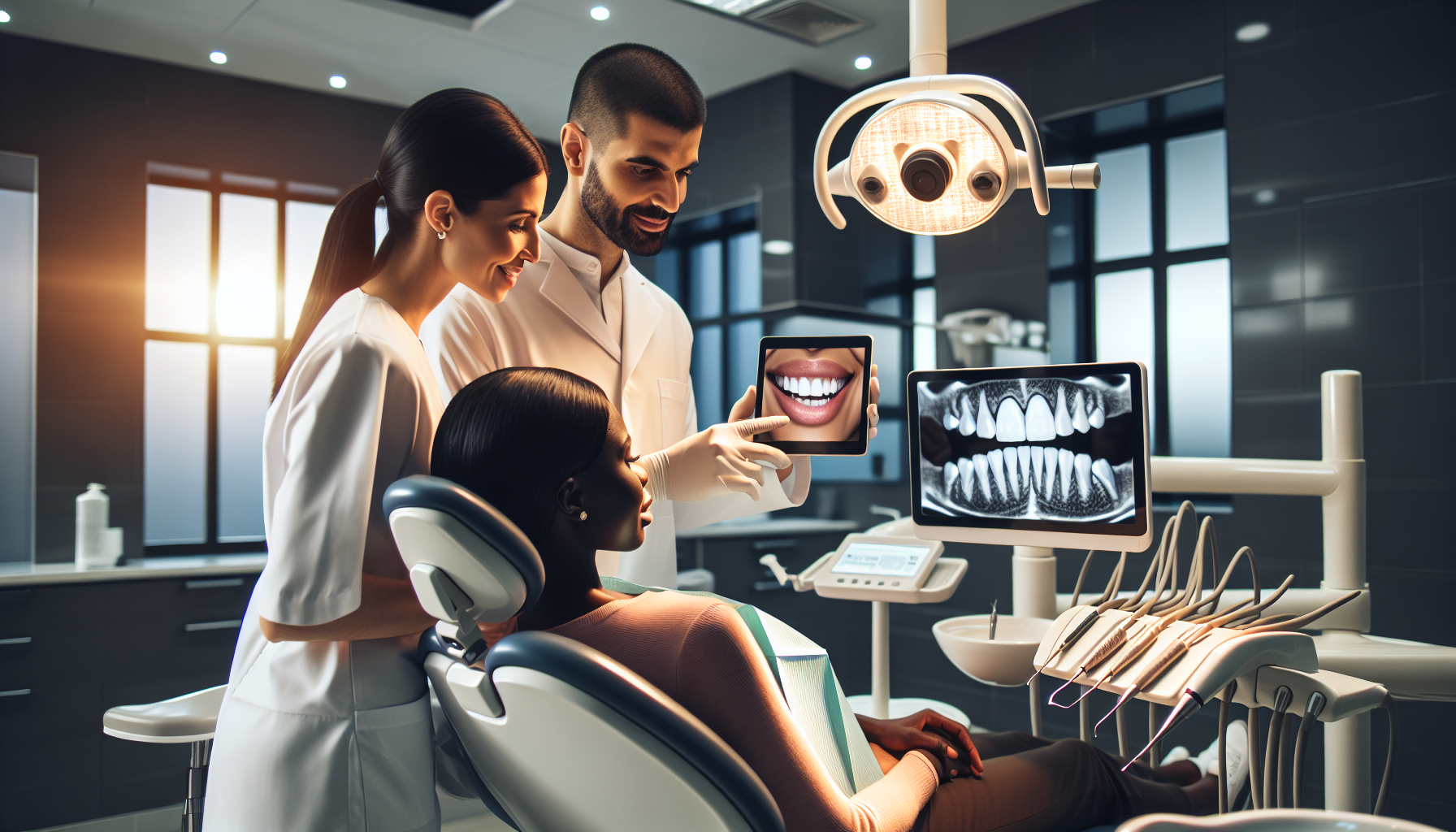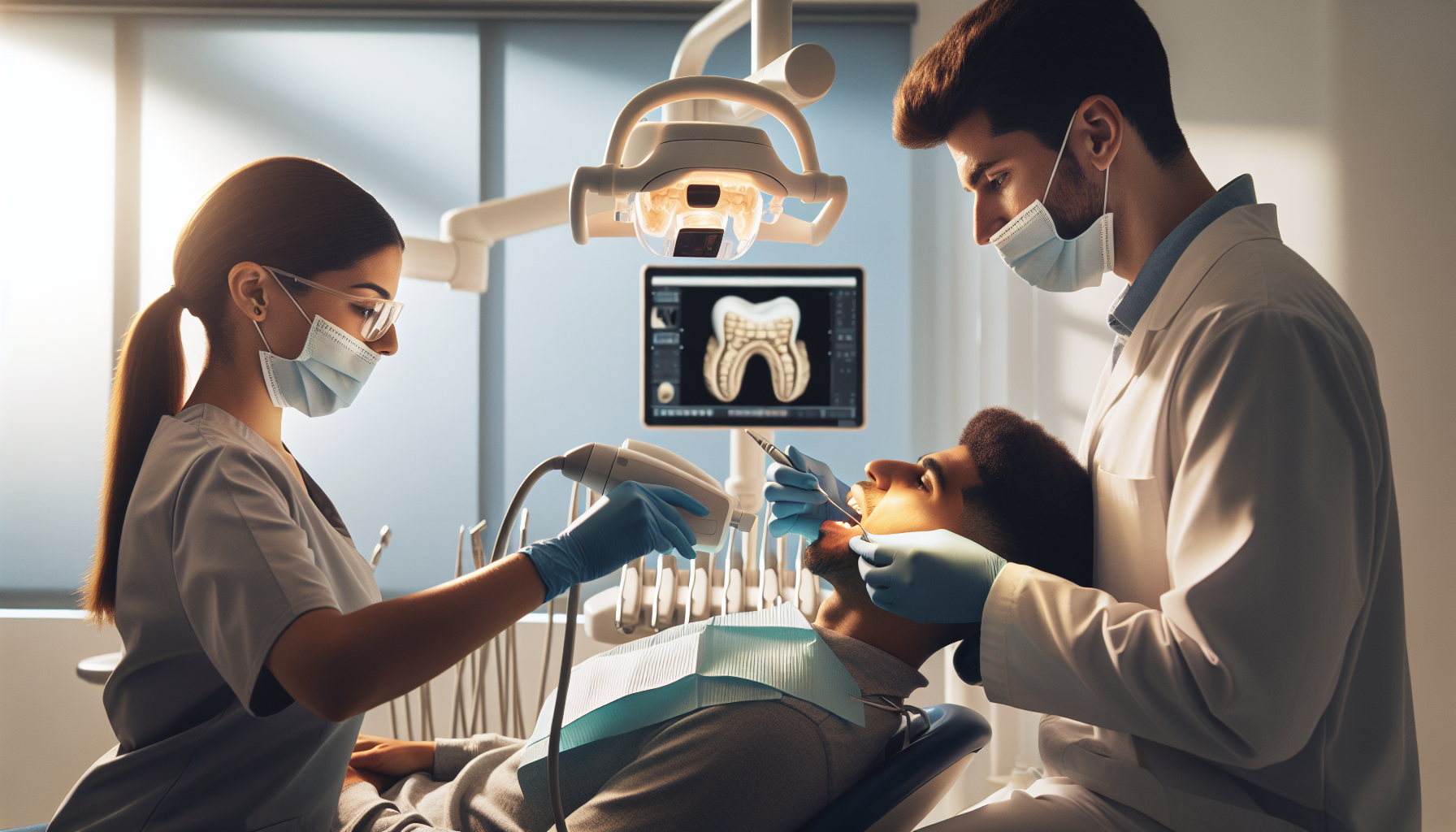
AI Innovations Transforming the Future of Modern Dentistry
Artificial intelligence is revolutionizing modern dentistry—from improving early diagnosis through advanced imaging tools to personalizing treatment plans and streamlining patient care. Cutting-edge AI technologies are enabling dentists to detect oral diseases faster, enhance precision in restorative procedures, and optimize clinical decision-making. As digital dentistry evolves, the integration of AI is shaping a future where accuracy, efficiency, and patient satisfaction redefine oral healthcare.

Global Digital Dentistry Market to Exceed 17 Billion by 2032
The global digital dentistry market is on track to surpass **$17 billion by 2032**, driven by rapid technological advancements, increasing demand for precision dental solutions, and the growing adoption of CAD/CAM systems and 3D printing. Innovations in dental imaging, chairside workflows, and cloud-based data management are revolutionizing oral care delivery worldwide. As dental practices prioritize efficiency and patient experience, digital tools like intraoral scanners and AI-driven diagnostics are becoming indispensable, signaling a transformative decade ahead for the dental industry.

Patients Show Cautious Acceptance Toward AI Integration in Dentistry
Recent research reveals that dental patients are cautiously optimistic about artificial intelligence being used in their care. While many appreciate AI’s potential to improve diagnosis accuracy, treatment planning, and overall efficiency, trust and privacy concerns remain key factors. The study highlights a growing openness to technology in dentistry—provided transparency, ethical use, and human oversight are maintained. As AI tools become more common in clinics, patient education and data security will play a vital role in shaping acceptance and confidence in digital dental care.

3D Systems Launches FDA-Approved Digital Denture Breakthrough
3D Systems has achieved a major milestone in dental innovation with the FDA approval of its groundbreaking digital denture solution. This new technology combines advanced 3D printing materials with cutting-edge design software to deliver faster, more accurate, and customizable dentures. The breakthrough is set to transform the dental industry by improving patient comfort, reducing production time, and enhancing the precision of prosthetic fittings—marking a new era in digital dentistry and additive manufacturing.

AI Dentistry and HIPAA Compliance Risks Explained for Dental Practices
Discover how artificial intelligence is transforming dental care — and why HIPAA compliance must remain a top priority for dental practices. This in‑depth overview explores potential privacy risks when integrating AI tools in dentistry, including data security challenges, patient information management, and best practices for avoiding HIPAA violations. Learn how to harness the benefits of AI responsibly while protecting sensitive patient data and maintaining regulatory compliance in your practice.

AI in Dentistry Assessed by General Dental Council
The General Dental Council (GDC) has released a comprehensive assessment on the use of artificial intelligence (AI) in dentistry, exploring how emerging technologies are reshaping patient care, diagnostics, and ethical standards. The report highlights both the opportunities and risks posed by AI-driven dental tools, emphasizing the need for proper regulation, clinician oversight, and patient safety. As digital transformation accelerates within the dental sector, the GDC’s findings underline the importance of professional accountability and transparency in integrating AI into clinical practice.

Presidio of Monterey Dental Clinic Boosts Readiness with Modern Technology
The Presidio of Monterey Dental Clinic is transforming military dental care through cutting-edge technology that enhances Soldier readiness and patient experience. By integrating digital dentistry, advanced imaging, and modern treatment tools, the clinic streamlines dental readiness evaluations while delivering faster, more accurate results. This modernization ensures service members remain deployment-ready and supports the Army’s ongoing commitment to innovation and soldier well-being.

How Patients Truly Feel About Artificial Intelligence in Dentistry
Discover how dental patients really perceive the rise of artificial intelligence in modern dentistry. From AI-powered diagnostics to personalized treatment planning, this article explores the benefits, concerns, and trust factors shaping the future of dental care. Gain insights into patient expectations, ethical considerations, and the evolving relationship between technology and human expertise in oral health. Perfect for dental professionals seeking to understand the human side of AI integration in their practices.

Align Technology Unveils Cutting Edge Digital Dentistry at 2025 Summit
Align Technology has revealed a new era of digital dentistry at its 2025 Summit, showcasing state-of-the-art innovations designed to transform orthodontic care. The company behind Invisalign and iTero scanners demonstrated how its cutting-edge digital platform enhances precision, efficiency, and patient experience. With advancements in AI-driven treatment planning and real-time 3D visualization, Align Technology continues to strengthen its leadership in the dental technology market. This unveiling marks a major step forward in integrating digital workflows into modern dental practices, setting new standards for accuracy and patient-centered care.

Toothfairy Secures $10M Funding to Revolutionize Digital Dentistry
Toothfairy, a leading innovator in digital dentistry, has raised $10 million in its latest funding round to accelerate the future of tech-driven oral healthcare. The investment will support the expansion of its AI-powered dental platform, remote consultations, and advanced virtual diagnostics—making professional dental care more accessible and affordable worldwide. With this funding boost, Toothfairy is poised to redefine how patients connect with dentists through modern, data-based solutions that enhance both convenience and clinical outcomes.

